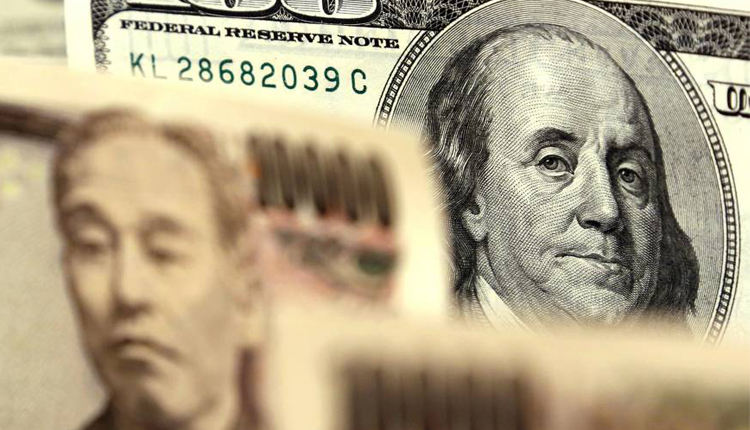The yen relinquished Wednesday’s early gains and weakened as risk appetites returned with Asian equity indices rising, despite trade tensions and weak U.S. corporate earnings
The U.S. dollar was relatively unchanged versus major peers such as the euro and Swiss franc.
The dollar index, a gauge of its value against six major peers, was wobbly in early Asia trade, down 0.03 percent at 95.91.
The sterling traded marginally higher versus the dollar ahead of British Prime Minister Theresa May’s key address later on Wednesday to Conservative Party lawmakers in parliament.
The pound was fetching $1.2988, up 0.05 percent. It has lost 2 percent versus the U.S. dollar in over a week amid concerns about Brexit and May’s survival.
The Canadian dollar strengthened as the markets expect the Bank of Canada to raise interest rates later on Wednesday.
The yen weakened 0.12 percent to trade at 112.43. On Tuesday, it gained 0.32 percent and was the best performing G-10 currency amid a sell-off in U.S. stocks and a global risk-off sentiment.
“We have maintained that when sentiment really turns nasty that the yen will remain the market’s safe haven of choice,” said Rabobank analysts in a research note.
The yen’s reversal came as Asian stocks recovered from a shaky start on Wednesday. At 0425 GMT, the MSCI’s broadest index of Asia-Pacific shares outside Japan was up 0.6 percent.
The pound will be in focus due to May’s addresses to her party’s so-called “1922 Committee” of backbenchers. How she goes down with restive lawmakers, some of whom want to topple her, will be watched.
“Our forecast remains for the pound to end 2018 lower at 1.25,” said Philip Wee, currency strategist at DBS, in a note.
The Canadian dollar changed hands at 1.3083 on Wednesday, with the greenback losing 0.1 percent to the Canadian dollar. The Bank of Canada is expected to raise its key interest rate later today by 25 basis points to 1.75 percent. It would be the fifth hike since July 2017 by the central bank, which sees Canada’s economy operating near capacity.
In an interview to The Wall Street Journal, U.S. President Donald Trump s escalated his attacks on Federal Reserve Chairman Jerome Powell, saying the head of the nation’s central bank threatened U.S. economic growth by raising interest rates.
However, traders did not seem to react to this news in the Asian trading session.
“We do not expect Trump’s comments on Fed to have much of an impact on US rates outlook or the dollar. They are also being increasingly discounted by the market,” said Mayank Mishra, global macro strategist at Standard Chartered.
“The Fed has maintained that strong US economic data justifies continued gradual Fed tightening,” added Mishra.
The euro was steady at $1.1472, although bearish sentiment against the common currency amid Italy’s budget woes have limited any chance of a rally.
On Tuesday, the European Commission rejected Italy’s draft 2019 budget, saying it brazenly broke EU rules on public spending, and asked Rome to submit anew one within three weeks or face disciplinary action.
The uncertainty around Italy’s free spending budget has also bred some doubt on whether the European Central Bank (ECB) would be able to raise interest rates next summer.
“Euro will move cautiously for the next 3 weeks as it looks like Italy oesn’t want to give ground,” said Rodrigo Catril, senior currency strategist at NAB.
“However, in the near term we don’t think Italy’s woes will affect ECB’s policy…ECB will try to paint a picture of confidence in the short term,”Catril said.
The Australian dollar changed hands at $0.7102, gaining 0.25 percent versus the greenback on Wednesday.
Source: Reuters


